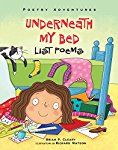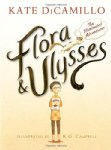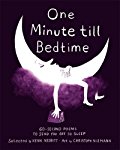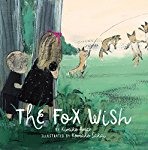When life throws us a curve ball, many of us have no idea what to do. We hold in our pain and anger, we don't talk about what is going on, and we go around feeling confused and lost. Often, at times like this, the only ones around who make us feel better are our pets. They understand that we are upset, and they offer up their unconditional love and acceptance. Even when we are being foolish.
In today's Book of Hope you will meet some animals who give their humans this kind of support, and they also teach them a thing or two about communication, forgiveness, and magic. I have to say that this book warmed me with its sweetness and gentle humor. It reminded me that hard times pass, especially when we have the courage to face our fears.
 Waiting for the Magic
Waiting for the Magic
Patricia MacLachlan
Fiction
For ages 7 to 9
Simon and Schuster, 2011, 978-1-4169-2745-7
Early on a summer morning Will’s parents have an argument
which ends with Papa leaving the house. He leaves Will and his sister Elinor notes
telling them that he is going “off to do some writing,” and that is it.
Soon after
William and Elinor find their notes, Mama tells them that they are going out.
The three of them get in the car and Mama announces that they are going to get
a dog. Papa never wanted a dog and so now that he has walked out (no one knows
for how long) Mama is going to get a dog.
This is a pretty
dramatic turn of events, which gets even more dramatic when Mama adopts not one
dog but four. And a cat. The family comes home with Bryn, Bitty, Grace, Neo and
Lula the cat, and in no time they all settle in. Neo takes it upon his big
puppy self to look after Lula the cat. Grace is Elinor’s shadow, and Bryn is completely
devoted to Mama. Mama mentions that she wishes Bryn could do some of her chores
for her and Elinor comments on how it would be magic if Bryn could do such
things. William firmly believes that “There is no such thing as magic,” but
Elinor, who is only four, is wise enough to know better. Elinor has not lost her
ability to tap into magic yet, and she knows that magic is real because she can
understand what the animals say.
One morning, at
the breakfast table, Mama tries to talk about Papa’s behavior but it is hard
for her. Elinor has no problem asking questions, but Will cannot seem to say
anything because the situation is so confusing and quite frankly it scares him.
The dogs understand that the boy is struggling, that he is afraid that if he
speaks freely he will make his mother cry. Will is trying to protect his mother
and sister as best he can by saying nothing.
When Gran and
Grandfather come for lunch one day, Elinor finds out that they too can hear the
animals. They even talk about it. Will thinks that they are making the whole
thing up, but Gran explains that Will is simple not young, not old, or “not
brave enough” to be able to access the magic around him. Will has no idea how
to respond to this.
On another morning
Mama once again gathers the family around the breakfast table and, with great
difficulty, she tells her children that she is going to have a baby. Will is
surprised that Mama has not told Papa the news yet. In fact he is upset that
she hasn’t, and he tells her that it is not fair to keep the news from Papa. He
finally speaks up, even though he knows his words might upset Mama.
Will tries to
explain how he feels, which is when he hears words in his head, the perfect
words that he wants to share with Mama. Will looks at Neo and he knows that the
dog is the one who gave him those words. Will has heard Neo because he is
speaking up and being brave. The magic is now there for him too.
The next morning
Papa comes to visit. Mama told him the news about the baby and he has come
home. Will does not know what to think and he wonders if Papa will stay. He
does, though he sleeps on the sofa at night. The dogs watch over Mama, and Papa
seems to understand that this is the way things are going to be. He accepts the
new order in the house quietly. After all, he was the one who walked out.
Will wants to
understand why Papa left and Papa tries to explain, but he is not very good at
it. He wanted to have some space so that he could write a book, and he thought
he needed to leave home to find that space, to find the “magic” to create
something. Some time ago Neo, who once lived with a writer, told Will that writers
need to work hard to write a book. Magic has nothing to do with the process.
Will shares these words of wisdom with Papa, who agrees that Will is probably
right.
It turns out
that Papa does, in fact, ending up finding magic, but not in the way he
expects. Just like Will, when Papa finds the courage to do something hard, the
magic finds him.
This truly
magical book explores how a family copes when one of their number loses his
way. Thankfully, help is at hand. Four dogs and one cat set about helping the
family members to come back together, and to find the inner courage that they
need to share their feelings, to be true to themselves and others, and most
importantly of all, to freely give their love.
 Underneath my bed: List Poems
Underneath my bed: List Poems 








